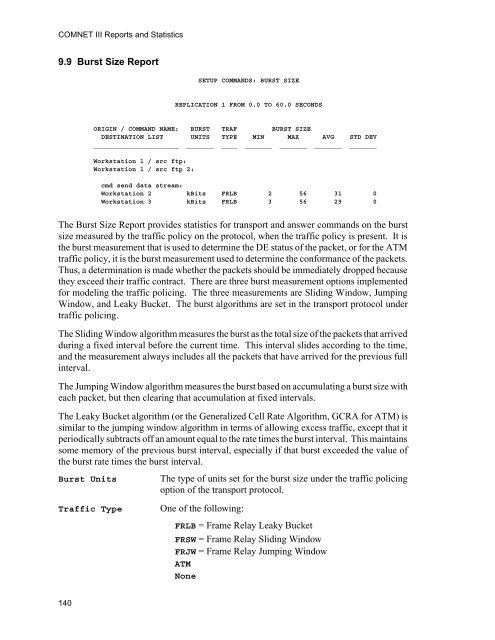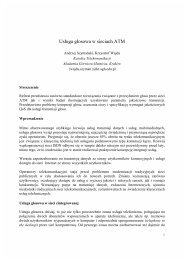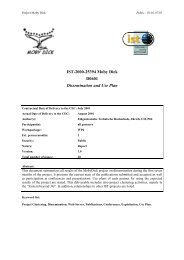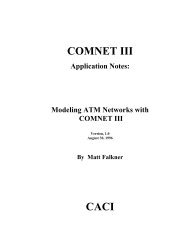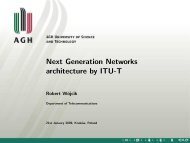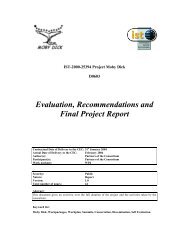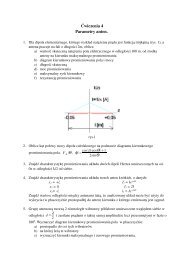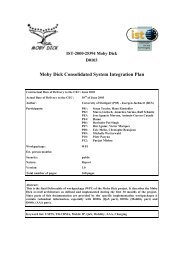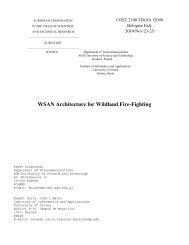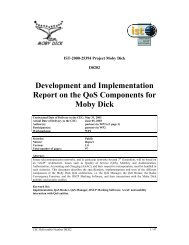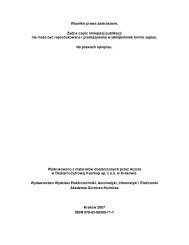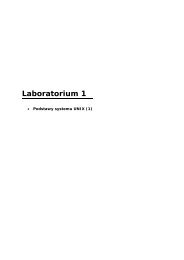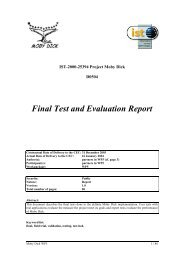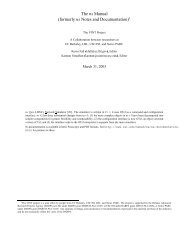COMNET III
COMNET III
COMNET III
You also want an ePaper? Increase the reach of your titles
YUMPU automatically turns print PDFs into web optimized ePapers that Google loves.
<strong>COMNET</strong> <strong>III</strong> Reports and Statistics<br />
9.9 Burst Size Report<br />
SETUP COMMANDS: BURST SIZE<br />
REPLICATION 1 FROM 0.0 TO 60.0 SECONDS<br />
ORIGIN / COMMAND NAME: BURST TRAF BURST SIZE<br />
DESTINATION LIST UNITS TYPE MIN MAX AVG STD DEV<br />
______________________ _______ ____ _______ _______ _______ _______<br />
Workstation 1 / src ftp:<br />
Workstation 1 / src ftp 2:<br />
cmd send data stream:<br />
Workstation 2 kBits FRLB 2 56 31 0<br />
Workstation 3 kBits FRLB 3 56 29 0<br />
The Burst Size Report provides statistics for transport and answer commands on the burst<br />
size measured by the traffic policy on the protocol, when the traffic policy is present. It is<br />
the burst measurement that is used to determine the DE status of the packet, or for the ATM<br />
traffic policy, it is the burst measurement used to determine the conformance of the packets.<br />
Thus, a determination is made whether the packets should be immediately dropped because<br />
they exceed their traffic contract. There are three burst measurement options implemented<br />
for modeling the traffic policing. The three measurements are Sliding Window, Jumping<br />
Window, and Leaky Bucket. The burst algorithms are set in the transport protocol under<br />
traffic policing.<br />
The Sliding Window algorithm measures the burst as the total size of the packets that arrived<br />
during a fixed interval before the current time. This interval slides according to the time,<br />
and the measurement always includes all the packets that have arrived for the previous full<br />
interval.<br />
The Jumping Window algorithm measures the burst based on accumulating a burst size with<br />
each packet, but then clearing that accumulation at fixed intervals.<br />
The Leaky Bucket algorithm (or the Generalized Cell Rate Algorithm, GCRA for ATM) is<br />
similar to the jumping window algorithm in terms of allowing excess traffic, except that it<br />
periodically subtracts off an amount equal to the rate times the burst interval. This maintains<br />
some memory of the previous burst interval, especially if that burst exceeded the value of<br />
the burst rate times the burst interval.<br />
Burst Units<br />
The type of units set for the burst size under the traffic policing<br />
option of the transport protocol.<br />
Traffic Type<br />
One of the following:<br />
FRLB = Frame Relay Leaky Bucket<br />
FRSW = Frame Relay Sliding Window<br />
FRJW = Frame Relay Jumping Window<br />
ATM<br />
None<br />
140


